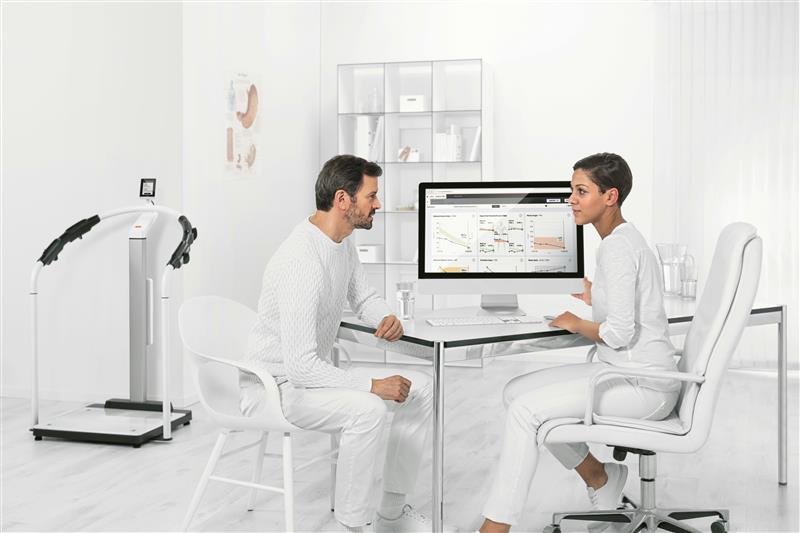
The impact of healthcare software development on medicine is profound and far-reaching. From enhancing patient care and improving access to healthcare services to driving advancements in research and development, healthcare software is reshaping the way healthcare is delivered, managed, and experienced. The integration of precision medicine, remote monitoring, interoperability, predictive analytics, VR/AR technologies, and mental health support into healthcare software demonstrates the continuous innovation and evolution in the field.
Healthcare software development is a driving force behind the transformation of medicine, enabling innovation, improving patient care, and enhancing efficiency across the healthcare continuum. As technology continues to evolve, the potential for further advancements in healthcare software remains vast, promising a future where quality healthcare is accessible, personalized, and patient-centered.
Enhanced Patient Care:
Healthcare software enables healthcare providers to deliver more personalized and efficient care to patients. Through EHR systems, clinicians can access patient information instantly, facilitating quicker diagnoses and more informed treatment decisions. Moreover, remote patient monitoring software allows for continuous tracking of patients' vital signs and health metrics, leading to proactive interventions and better disease management.
Improved Access to Healthcare:
Telemedicine platforms and mobile health applications are breaking down geographical barriers and expanding access to healthcare services. Patients can now consult with healthcare providers remotely, eliminating the need for physical appointments and long waiting times. This is particularly beneficial for individuals in rural or underserved areas who may have limited access to healthcare facilities.
Streamlined Administrative Processes:
Healthcare software streamlines administrative tasks such as appointment scheduling, billing, and insurance claims processing. Automation reduces the burden on healthcare staff, minimizes errors, and enhances overall efficiency. Additionally, analytics tools integrated into healthcare software provide valuable insights that enable healthcare organizations to optimize resource allocation and improve operational performance.
Empowerment of Patients:
Patient engagement is crucial for achieving better health outcomes, and healthcare software plays a vital role in empowering patients to take charge of their health. Patient portals and health tracking apps allow individuals to access their medical records, track their progress, and communicate with their healthcare providers conveniently. This fosters collaboration between patients and providers, leading to more informed decision-making and improved adherence to treatment plans.
Advancements in Research and Development:
Healthcare software facilitates data collection and analysis on a large scale, driving advancements in medical research and development. By aggregating and analyzing patient data from diverse sources, researchers can identify patterns, uncover insights, and accelerate the discovery of new treatments and therapies. Additionally, software tools for clinical trials management streamline the process of conducting research studies, making it more efficient and cost-effective.
Ensuring Data Security and Privacy:
With the digitization of healthcare data comes the responsibility to safeguard patient information against security breaches and privacy violations. Healthcare software developers prioritize data security measures such as encryption, access controls, and regular audits to protect sensitive information from unauthorized access or misuse. Compliance with regulations such as HIPAA (Health Insurance Portability and Accountability Act) is essential to maintain patient trust and confidentiality.
Precision Medicine:
Healthcare software facilitates the implementation of precision medicine approaches by integrating genomic data with clinical information. This enables healthcare providers to tailor treatment plans to individual patients based on their genetic makeup, lifestyle factors, and environmental influences. By harnessing the power of data analytics and artificial intelligence, precision medicine holds the promise of more effective therapies with fewer side effects.
Predictive Analytics for Preventive Care:
Healthcare software leverages predictive analytics algorithms to identify patients at risk of developing certain conditions or complications. By analyzing historical data and risk factors, predictive models can forecast potential health issues and enable proactive interventions to prevent adverse outcomes. This shift from reactive to proactive care has the potential to significantly reduce healthcare costs and improve population health outcomes in the long term.
Virtual Reality (VR) and Augmented Reality (AR) in Healthcare:
The integration of virtual reality (VR) and augmented reality (AR) technologies into healthcare software is opening up new possibilities for medical education, training, and patient engagement. VR simulations allow medical students and healthcare professionals to practice procedures in a realistic virtual environment, enhancing their skills and confidence. AR applications can assist surgeons during complex surgeries by providing real-time guidance and visualization of anatomical structures, leading to better surgical outcomes and reduced risks.
Mental Health Support and Teletherapy:
Mental health apps and teletherapy platforms are gaining traction as convenient and accessible resources for individuals seeking mental health support. These platforms
Remote Monitoring and Chronic Disease Management:
For patients with chronic conditions such as diabetes, hypertension, or heart disease, remote monitoring software plays a crucial role in disease management. Patients can use wearable devices or smartphone apps to track their symptoms, medication adherence, and lifestyle habits. Healthcare providers can remotely monitor patients' data in real-time, intervene when necessary, and adjust treatment plans accordingly, leading to better outcomes and reduced healthcare costs.